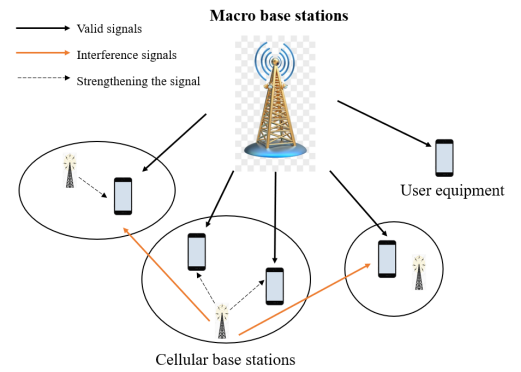A Study of Innovative Technologies for Energy-Efficient Enterprise Management of Wireless Heterogeneous Networks in Collaborative Communications
Main Article Content
Abstract
Collaborative communication technology has become a popular research area in wireless communications due to its ability to resist varying degrees of channel fading through the collaborative transmission of network nodes. This thesis focuses on energy-efficient collaborative communication systems in increasingly complex environments in heterogeneous wireless networks, with the aim of optimizing energy efficiency and improving user data rates in small areas (e.g., within an enterprise). A brief introduction to the basic technologies of wireless energy-carrying collaborative communication systems is given, summarising relay forwarding strategies, three basic communication models, and energy and information co-transmission reception mechanisms before proposing an ED-OEH relaying protocol at the end of the section that integrates energy classification and opportunity energy harvesting. Immediately afterwards, the heterogeneity of network nodes in terms of computation and storage is pointed out, and a sensor network security protocol based on a hybrid encryption regime is designed. Finally, the problem of intra-enterprise resource allocation and energy efficiency optimization in heterogeneous wireless network scenarios based on deep augmented learning algorithms is investigated. Nature DQN is used as the core algorithm, and the input dimension and loss function in traditional neural networks are improved to reduce the complexity of the algorithm. Experimental results show that the Nature DQN algorithm converges faster than traditional algorithms such as Q-learning, and the energy efficiency ratio can reach up to 300%.
Article Details
How to Cite
Lin, W. (2024). A Study of Innovative Technologies for Energy-Efficient Enterprise Management of Wireless Heterogeneous Networks in Collaborative Communications. International Journal of Communication Networks and Information Security (IJCNIS), 16(1), 1–18. Retrieved from https://www.ijcnis.org/index.php/ijcnis/article/view/6344
Section
Research Articles

